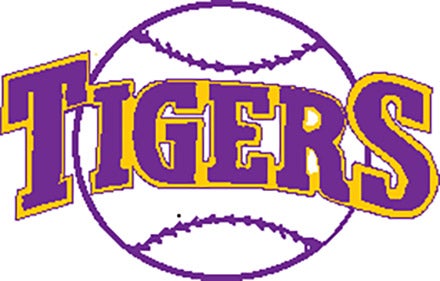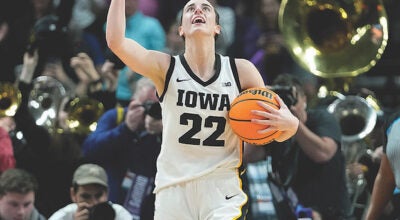Targeting rule making big impact on college game
Published 7:48 am Tuesday, October 29, 2013
As his teammates fought through the first half against a high-powered Central Arkansas offense a few weeks back, a frustrated Aaron Sam stood on the sideline.
Like a caged tiger ready to pounce, Sam was forced to watch and wait.
That’s not his style.
Sam missed the opening half of that game because of what happened a week earlier.
In the second half of a loss at Northern Iowa, the safety was penalized for targeting an opponent’s head on a tackle. Since the violation came after halftime, he was not only flagged 15 yards and ejected from that contest but also the first half of the next one.
“It was really hard to sit there and watch,” Sam said. “I didn’t like that at all.”
Consider it college football’s version of tough love.
Like professional football, colleges are trying to make their game as safe as possible, especially when it comes to head injuries. That has left defensive players like Sam suffering through a period of adjustment.
“I understand what they are trying to do, but it isn’t easy,” said Sam, who two weeks later would make 10 solo tackles in a win over Sam Houston State and be named national defensive player of the week.
That might prove he is a quick learner, but Sam is still unclear as to where the line is drawn.
“I am real conscious of the rule now,” he said. “I don’t ever want to sit out again.”
Sam isn’t the only Cowboy who has had to miss time.
Linebacker Hayden Dobbs has also felt the wrath of the new ruling.
“It is not fun to sit out for any reason,” Dobbs said. “You may not like the rule but you have to respect what everybody is trying to do. I know that if I get an interception I don’t want somebody targeting my head.”
Both players agree the sport is changing for the better, but that the rules are making a big impact.
“I have changed how I tackle,” Sam said. “I go for the legs. The area between the waistline and the knees is what I’m looking for. One-on-one in the open field, it is hard to size somebody up now. You really can’t go high, so you have to go low.”
Players are quick to point out that they are being forced to learn on the job and the change has come quickly.
“We are used to it,” Dobbs said. “The targeting rule has been in effect so we had to adjust. I don’t like it, but I have to learn to play with it.
“You just have to play and try to play right. You can’t think about it. If it happens it happens. You can’t hold back or you might get hurt.”
Sam agreed.
“We are becoming used to it. It is like second nature,” he said. “You really don’t have time to think about where you are going to hit them. If you think they are gone. You just have to react.”
What makes it tough is in the lower levels of college football, unlike in the BCS, there is no immediate review process.
Some of the ejections on the field have been reversed by replay officials at big schools. In the Football Championship Subdivision, which is where McNeese plays, and below, the review process only comes after the game. The ejection remains.
“I would love to see us have that review process right away,” said McNeese State defensive coordinator Lance Guidry. “If there had been a review, I don’t think Dobbs would have been ejected.”
Taking a top player out on a questionable call could change the course of the game. Had Sam not been able to play the first half against Sam Houston, the outcome might easily have been different.
That means targeting calls can change the course of a game or a conference championship.
“Officials are doing their best, I understand what they are doing,” Guidry said. “They are trying to make a statement. You can’t go against the idea of protecting people. I understand that.
“I think right now they are a little quick with it. As the season and years go by I think they will get better.”
Guidry says it puts more pressure on officials as well as players.
“Some of the calls they are making for targeting, in the bigger level like the SEC they have the review so the officials are not held as accountable,” he said. “In the Southland, without the review, they are accountable.
“It is perception. What they think is a hit for an ejection and what I think is different. You are at the mercy of the official’s perception.”
It has forced coaches to go back to the basics when it comes to teaching tackling.
“We try to tell them not to leave their feet, don’t launch,” Guidry said. “Don’t target above the head. The main thing we tell players is to wrap up. I think if you wrap your arms they are not going to call it. They will have a hard time calling it.”
Sam said that officials too are learning on the fly as well.
“They are working with us all the time, talking to us,” Sam said. “They are giving you warnings about hitting, telling you what is and isn’t close. That helps us out back there.”
The rules seem to have given offensive players a fresh attitude as well. They are now quicker to attack at the end of runs, putting defenders on their heels even more.
“They drop their shoulders on us real fast,” Sam said of offensive players. “They are coming after us.”
Still, playing defense is a mind set.
“I would always rather be on defense and give the blows,” Sam said.
Still, everybody knows the game is not the same. From protecting players with less contact in practice to watching out for their health on the field, football is changing.
Not everybody likes it, but all know it to be fact.
“Yes, it will never be the same,” said Guidry, who remembers back in his playing days defenders would often take a shot at an offensive player just to send a message.
“I understand it, I really do, but I don’t always like it.”
Most of his players would agree, especially Sam and Dobbs.
They have learned college football’s new lesson the hard way.
(Photo illustration by Rick Hickman / Special to the American Press)




